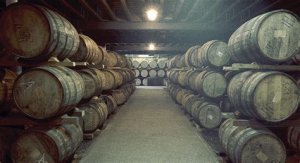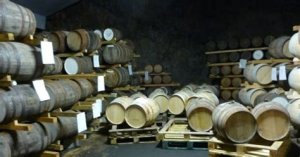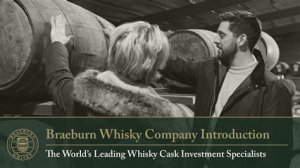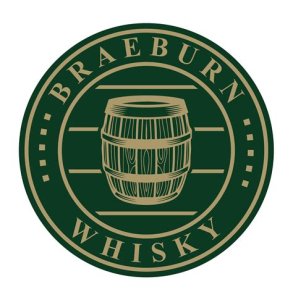The Tangled Web
Oh what a tangled web we weave… Is this the beginning of the end of the chancers, fraudsters and ‘expert consultants’ who have plagued the whisky industry with their get rich quick schemes, offering casks at ludicrously inflated prices?
The recent BBC doc ‘Hunting the Whisky Bandits’ revealed the fraudulent activities of Whisky Scotland and firms run by convicted fraudster Craig Brooks (aka Craig Archer/Craig Hutchins): Cask Whisky Ltd/Cask Spirits Global.
As the news spread and more wrongdoings emerge what will it do to consumer confidence in what is currently a fragile market.
Here were all the problems over an unregulated market laid bare at a time when removing regulation (once a Tory mantra) is being avidly pursued by a Labour government.
Take heed. This is a market which is open to fraudsters and deceivers where the lack of transparency in the market leaves it open to Ponzi schemes.

There are however safeguards which any investor should follow. A ‘certificate/guarantee of ownership’ which is promised by many of the investment firms, is not sufficient.
Without a delivery order, the firm you bought the cask from still owns the cask. You cannot sell it, transfer ownership, move it to another warehouse, or bottle it. If they go bust, you lose the cask.
Beware anything that says ‘guaranteed return’, avoid websites that require you to register before they show what casks they have. Check who you are buying from and the market prices. Ensure that you get a delivery order, that there’s insurance, and that you have an exit strategy.
Look to reputable firms: CaskNet, Whisky Invest Direct, Mark Littler and read the information in Felipe Schrieberg and Littler’s Protect Your Cask.
What was once a fun activity – friends working as a syndicate, parents laying down stock as a legacy for their children, new distilleries raising much-needed cash, investment for a modest return – has become tarnished. The firms who play by the rules inevitably get drawn into a web of suspicion.
The exposés, which seem to be coming with greater frequency, might be welcome, but people who have been suckered into the game by sharp suited, hard-eyed spivs are losing money – often their life savings. Did the industry do enough to stop this? Where was the due diligence? Was it in some way culpable?
The only way in which you will make money from a cask investment is by selling it, a strategy which is wholly predicated on the market continuing to rise, or by bottling the contents.
If you buy a cask filled with new make today, it will be three years before it can be called whisky. Realistically, you’ll be holding on to it for a decade. Do you really know what the whisky market will be like in 2035? What will the reputation of that distillery be like?

Let’s assume that we have emerged out of the current slump. Who do you sell your cask to? Back to the distillery? Possible, if you have agreed a contract which will have them buy back at the current market value.
Will the the firm who sold it to you want to pay the price you are asking, will they even exist? If they do buy back you can be assured that the less scrupulous among them will simply flip it on to another naïve investor at an even higher price.
What about a broker or IB? Both are already refusing casks because the price that the investor is asking for to ensure a profit is already too high. People are stuck with mature whisky which they will only ever be able to sell at a loss..
Will you bottle it yourself? If you take the last option, do you have enough friends to drink a couple of hundred bottles? Can you pay the duty, warehouse rent, VAT, bottling, labels and distribution? Can this single cask bottling compete with other 10 -year-old whiskies when it is already more expensive?

The latest collapse, broken by Felipe Schrieberg in Forbes, was that of Teaghglach Holdings PLC and its associated firms. Teaghlach (Gaelic and Irish for ‘family’), has filed an ‘active proposal to strike off’ with Companies House.
It controlled Whisky Merchants Trading Ltd., which is now in administration, which in turn operated two subsidiaries, Cask88 Ltd (which was dissolved in 2019) and Braeburn Whisky Scotland which has now ceased trading.
Teaghlach’s directors were Peter Taylor, Edward Davidson, and Ma Xianmei. Davidson and Patrick Costello were on the board of Whisky Merchants Trading. The latter resigned on 28 April. Davidson is still listed as being active. He and Ma Xianmei were also both directors of Cask88 Ltd. Both are listed as residing in Spain where Braeburn also had an office (now closed).
Braeburn Scotland was not registered in the UK. It appears that the business in terms of payments, documentation, and ownership of casks was run through Singapore. It still operates in the US as Braeburn Whisky Inc. Davidson and Ma Xianmei are listed as directors, with Taylor Costa Van Putten, as president and Samuel Gordon as managing director. ‘I wasn’t always a whisky fan, but you learn pretty quickly,’ the latter told insidehook.com in a puff profile in 2022. Indeed you do.

Braeburn Whisky Inc. remains active and assures its US clients that their whisky is safe, unlike the UK investors in Whisky Merchants Trading Ltd/Braeburn Scotland who fear losing their money. While there is no evidence of financial mismanagement at Braeburn Scotland (or the associated firms) if I were an investor I’d check.
Just last week, Andrew Lui at Bamboo88 began to dig into the connection between the Scotch firms and Dekantā, the purveyor of Japanese whisky (and ‘Japanese’ whisky).
Dekantā’s prices and offers have always raised eyebrows but, as they say, the market decides and if there are sufficient schmucks willing to pay then what can you do?
In private, Japanese distillers expressed concern about the business, its pricing structure and cask sale schemes, but no-one seemed willing to remove their whiskies from the platform. The blurring by the firm of the old and new Karuizawa distilleries has also raised concerns, something I covered here.

Singapore-based Dekantā Alcohol International Trading Pte. Ltd. is owned by, guess who, Ma Xianmei and Edward Davidson who also own Braeburn Whisky Singapore Pte. Ltd and Cask88 Trading Pte.Ltd. There are also offices in India and the Philippines. It isn’t clear if either of these outposts are still trading. The couple also appear to be behind The Whisky Foundation (not Our Whisky Foundation).
In the piece Lui claims that, ‘Whisky cask investors outside of the United States were invoiced by the respective Singapore-based entities of Cask 88 and Braeburn. Funds were then transferred to UK affiliates to pay employees and buy casks and other supplies.
‘This confusing company structure allowed Mr. Davidson, Ms. Ma and Mr. Costello to circumvent the UK’s [WOWGER] Regulations (*), move their funds to offshore accounts, reduce their tax burden and limit their liability.’ He does not allege any wilful criminal wrongdoing.
‘Tá siad teaghglach mór ann’ , means ‘they are a large family’. And that’s the problem. Davidson, Ma and their associates are not the only members. How many more relatives are out there?
(* WOWGER ceased to exist in March 25)